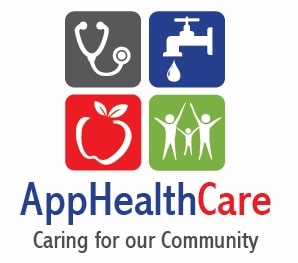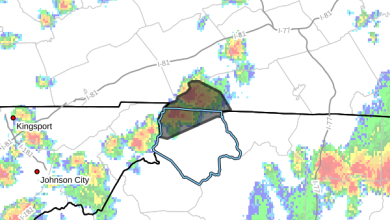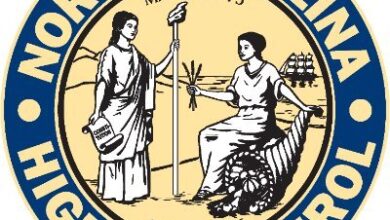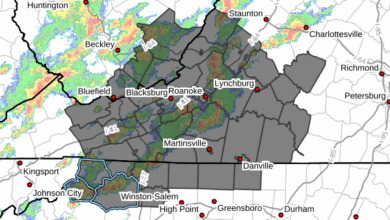
Last Updated on February 12, 2022 7:05 pm
Sparta, NC – An Alleghany County resident has tested positive for COVID-19, bringing the total of identified cases among Alleghany County residents to 3. With this case, we suspect it is a result of community transmission, meaning there is no identified direct link to how the person contracted the illness. Our public health staff have identified close contacts who are in quarantine.
“As we begin to ease restrictions in the coming weeks and months, testing is occurring more so that we can quickly identify cases and isolate them. We have been using a public health strategy called mitigation over the recent weeks, but are now transitioning back to testing more plans for easing restrictions in an incremental way. Since we will be expanding testing, we will likely identify more cases. We expect our local numbers to increase in the coming weeks, so we urge continued vigilance,” stated Jennifer Greene, Health Director, AppHealthCare.
“We appreciate the community’s work to lessen the impact of this virus in Alleghany County. Please continue to follow all the state and local orders and stay home to the greatest extent possible. We know this is affecting each community member in different ways, and know we will get through this together. Stay safe, separate,” stated Daniel Roten, Alleghany County Emergency Manager.
A cumulative, positive case count for Alleghany, Ashe and Watauga Counties can be found on AppHealthCare’s website. This count reflects confirmed cases in residents of Alleghany, Ashe and Watauga Counties.
How to Protect Yourself
● Practice social distancing which means avoiding gatherings of more than 10 people, keeping 6 feet or more between you and others and remaining at home to the greatest extent possible
● Frequent hand washing
● Cover your cough or sneeze
● Keep distance from others who are sick
● Avoid touching your face
● Clean and disinfect high touch surfaces in common areas like doorknobs, remotes, lightswitches, tables and handles
● Wear cloth mask or face covering when out in public where you may be around people like grocery stores or pharmacies – more information about face coverings can be found on the AppHealthCare website.
COVID-19 (novel coronavirus) Signs & Symptoms
Symptoms may appear 2-14 days after exposure. According to the CDC, people with COVID-19 have had a wide range of reported symptoms.
● Fever
● Cough
● Shortness of breath or difficulty breathing
● Chills
● Repeated shaking with chills
● Muscle pain
● Headache
● Sore throat
● New loss of taste or smell
People at high risk include anyone who:
● Is 65 years of age or older
● Lives in a nursing home or long-term care facility
● Has a high-risk condition that includes:
○ Chronic lung disease or moderate to severe asthma
○ Heart disease with complications
○ Compromised immune system
○ Severe obesity – body mass index (BMI) of 40 or higher
○ Other underlying medical conditions, particularly if not well controlled, such as diabetes, renal failure or liver disease
People who are at high risk should stay home to the greatest extent possible to decrease the chance of infection.
Testing
Based on the latest recommendations issued by the NC Department of Health & Human Services, testing is expected to expand in the coming days and weeks. Our public health strategy has needed to be flexible and responsive, and this expanded testing guidance allows for more testing to occur. Expanded testing will allow us to continue to identify additional cases of COVID-19, isolate them and quarantine close contacts to hopefully break the chain of infection. Expanded testing allows a clinician to test when they suspect a COVID-19 test may help the course of treatment for that patient. We are working closely with the NC Department of Health & Human Services and other partners to ensure testing capacity is increased as we begin to ease restrictions.
If you have symptoms consistent with COVID-19, we would recommend you be tested. This means if you are sick with a fever, cough or other mild symptoms, call your healthcare provider or AppHealthCare. Please do not just show up to a healthcare provider without calling first. This will help your provider prepare should you need to be tested and lessen the potential exposure to others. AppHealthCare will serve anyone, regardless of their ability to pay. As is our usual day-to-day practice, a patient will not be turned away due to inability to pay.
If you have a medical emergency, please call 911 immediately.
Managing Your Overall Health
During this time, it is important to manage your overall health. There are resources available if you need to reduce anxiety or stress, are experiencing suicidal thoughts, need to better manage chronic conditions and more. Visit the North Carolina Department of Health and Human Services website.
AppHealthCare is available and on-call 24/7 to respond to public health emergencies. To reach us, call (336) 372-5641 anytime and follow the prompts. AppHealthCare has set up a COVID-19 hotline at 1+ (828) 795-1970 for information during regular business hours. We will continue to monitor COVID-19 in our community and will work to keep the public informed. Please visit our website for more information – www.AppHealthCare.com. You can also follow us on Facebook and Twitter.
Questions from agencies requesting support on COVID-19 response, planning efforts, etc. can contact preparedness@apphealth.com.
Additional Resources
Centers for Disease Control & Prevention (CDC) website at cdc.gov/coronavirus.
North Carolina resources can be found on the Division of Public Health website at ncdhhs.gov/coronavirus. To view the case count for North Carolina, including a county map, please visit the NC DHHS website here.
A COVID-19 toll free helpline has been set up to answer general, non-emergent questions at 1-866-462-3821. To submit questions online, go to www.ncpoisoncontrol.org and select “chat.”















